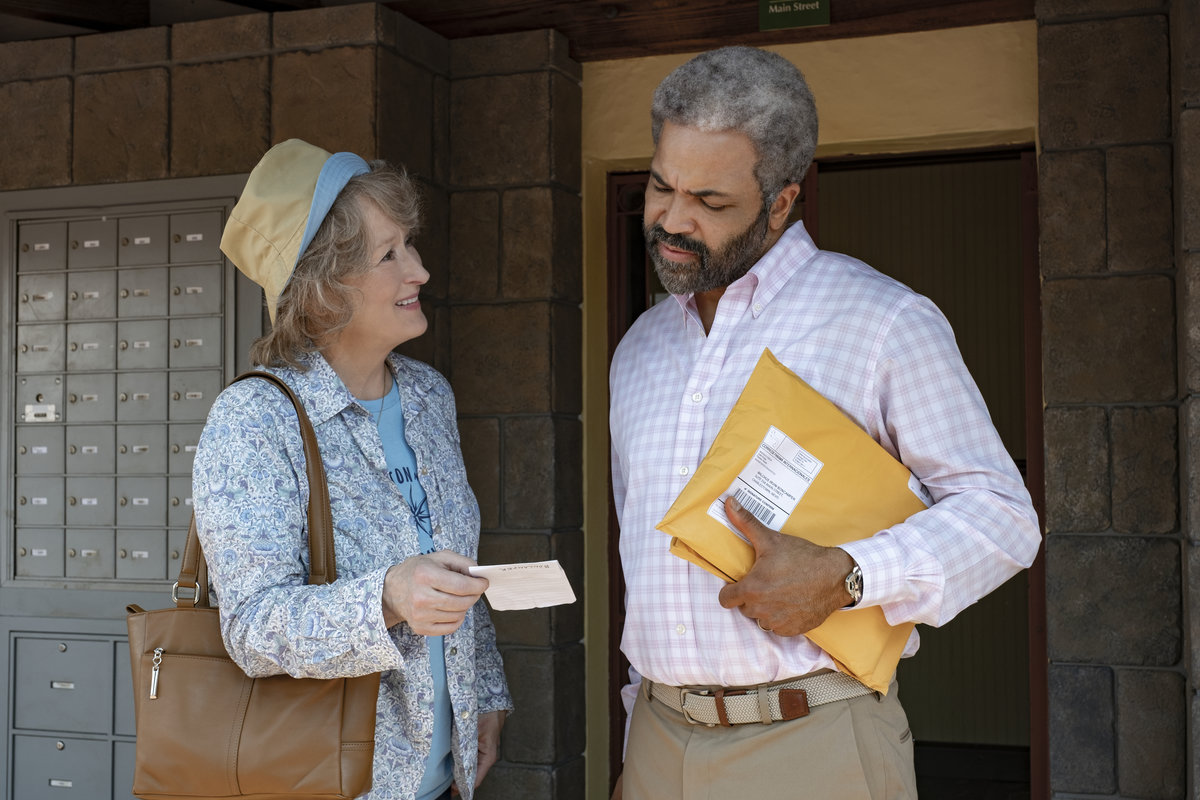

Somehow simultaneously light-hearted, heavy-handed, and sporadically obscene, The Laundromat promises a kind of ironic and worldly-wise lesson in the basic principles of international money laundering. What it delivers, however, is of such passing interest that, like cheap paperbacks already browning on the store shelf, it hits the small screen already pretty washed out.
Initially the story follows a widow (Meryl Streep) who has been embezzled out of a large sum of insurance money, but the narrative quickly breaks up into several loosely related vignettes aimed at illustrating how some of the world’s wealthiest and least scrupulous inhabitants hide their excess earnings.
We watch, for instance, a family of African multimillionaires living in Los Angeles who deceive, bribe, and then deceive each other again. Corrupt officials in China who build factories, murder bankers, and buy houses overseas. Expat lawyers living in Panama who forge documents, fake signatures, and stamp thousands of paper corporations into existence.
In many ways like The Big Short – whose edutainment-with-intertwining-plotlines set-up seeks to expose dodgy behind-the-scenes financial machinations – this latest direct-to-Netflix release never quite reaches its predecessor’s perspicacity of insight nor dramatic heft.
The relative lack of storytelling sparkle is not for want of mustering enough stars, however: Gary Oldman, Antonio Banderas, Will Forte, and Matthias Schoenaerts are a few of the familiar faces who fill key roles and cameos.
Neither is the problem with the content itself. As The Big Short makes plain, subject matter that is at once convoluted, arcane, and in its essence even eye-blearyingly mundane, in the right hands, can transmute into engaging, soul-stirring stuff.
Rather, the relative flatness of this film seems maybe to have to do with forgetting, somewhere along the way, a few of the fundamentals of great art, for example, indirection and at least an attempt to communicate something universally human.
Tell all the truth but tell it slant – these words are as appropriate today as when Emily Dickinson penned them two centuries ago. Yet by force-feeding its politics – a rabble-rousing call to contemporary American tax reform – it fails, on the one hand, to distinguish itself sufficiently from agitprop suitable for the daily-dose news cycle. Its larger failure, on the other hand, is that it forfeits what might have been an effective metaphysical message even though several of the film’s monologues touch upon some of the irreconcilable prerogatives that motivate the fallen human soul. One of The Laundromat’s characters repeatedly juxtaposes the natural desire for this-worldly success with the other-worldly values of the beatitudes, for instance, and in so doing raises what might in fact be the basic human question about money.
“We want to be fair, and yet we want to win. We want to be righteous, and we want to get ahead.” We want to save the world, an immaculately dressed Panamanian lawyer continues, but finding that this often requires long hours, bad pay, and a world that perhaps does not want to be saved, some individuals will eventually decide it might just be easier to save themselves.
Here the film puts a finger to the pulse of the inconstant and self-conflicted heart that beats in the chest of every human person, and had it kept on prodding and poking in this vein, it might have produced a portrait of humanity worthy of the ages.
Instead, by setting its sights quite pointedly upon a contested contemporary economic issue, it will presumably fall prey to that long-lasting paradox by which the works of art most self-consciously “of the moment” also become those most quickly (and perhaps irretrievably) out of date.
Had The Laundromat used money to talk about humanity in general, it would have used something in the domain of what is passing to illuminate something in the domain of the everlasting, and so perhaps accomplished some kind of success in both. But by doing the opposite, and using humanity to talk about mere money, it aims so low that it seems ultimately to achieve very little in either.
(Originally published in The B.C. Catholic)
